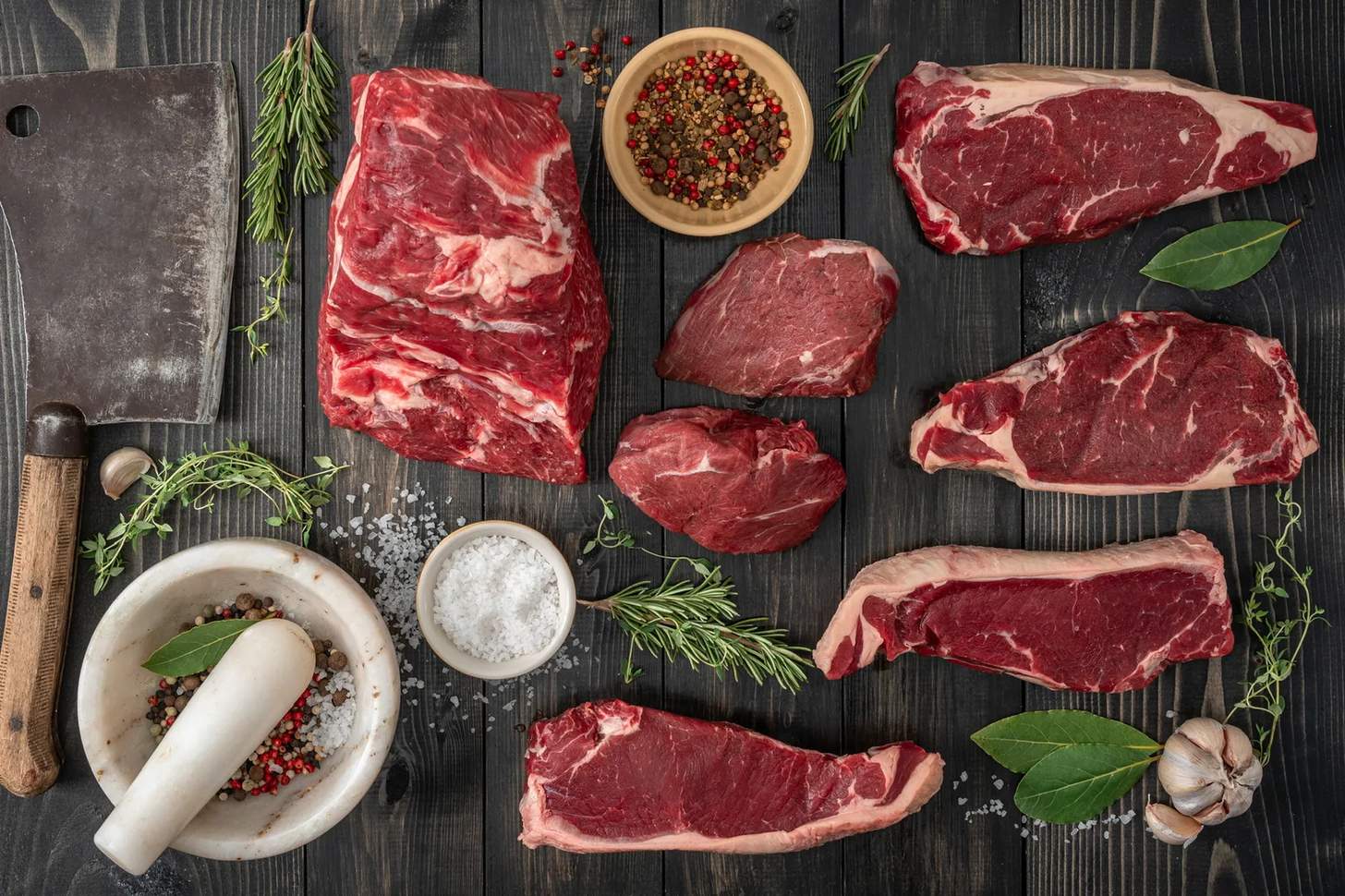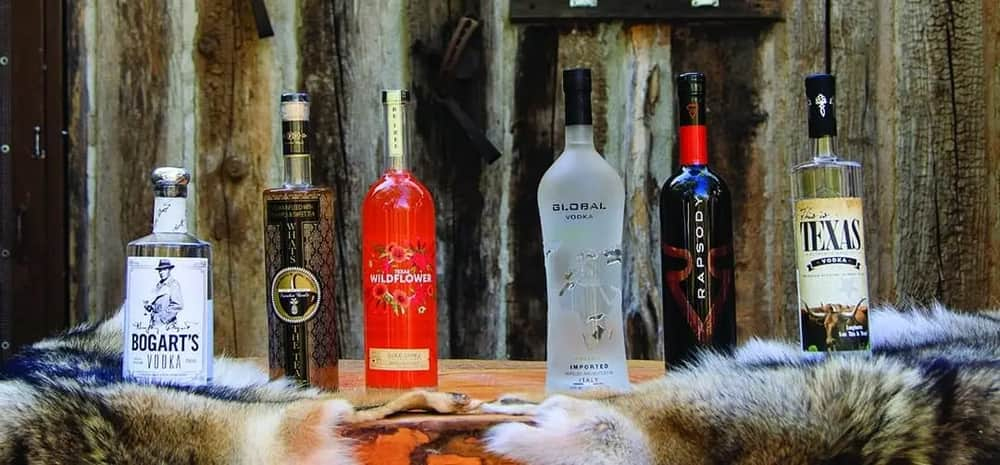Click to listen to the audio version of this article.
A Family’s Regen-Ag, Organic Certified Formula For Raising Meat That Tastes Great, Plus Some Mythbusting About What’s Healthy & What’s Not
In 2017, Kristina and Jason Walker decided to raise cattle on their already certified organic family farm. Passionate about healthy eating, they aimed for their beef to be as delicious as fat-laden feedlot beef and even healthier than organically raised beef. At the same time, they needed to turn a profit.
To meet this challenge, the couple chose a path some people considered bold or crazy as Jason’s parents were when they chose to farm organically. Kristina and Jason went beyond organic farming and into the transformative realm of regenerative agriculture, aka regen ag, which is increasingly recognized as critical for creating sustainable food systems.
The Walkers’ gamble has paid off: StarWalker Organic Farms has become one of the first certified regenerative organic producers of beef and pork in the United States. Demand for their nutrient-rich, grass-fed meat has been so high that they recently purchased a processing plant to keep up with orders. (Although Kristina and Jason are considered “StarWalkers” in today’s regenerative agriculture movement, the farm’s name has no connection to Star Wars or video games. Jason’s grandparents combined the family name, Walker, with a star emblem they used on their potato boxes.)
To those who know Kristina and Jason, their success in the highly competitive farming business is no surprise. Both grew up in Northern California’s Scott Valley at the foot of the Marble Mountains. Kristina lived down the road from the Walkers’ family farm, and they were high school sweethearts. When college beckoned, they moved north to Ashland, Oregon, where they stayed for 15 years. They married and had two children. Jason owned and operated his own construction company, while Kristina ran multiple businesses, including a dance studio.
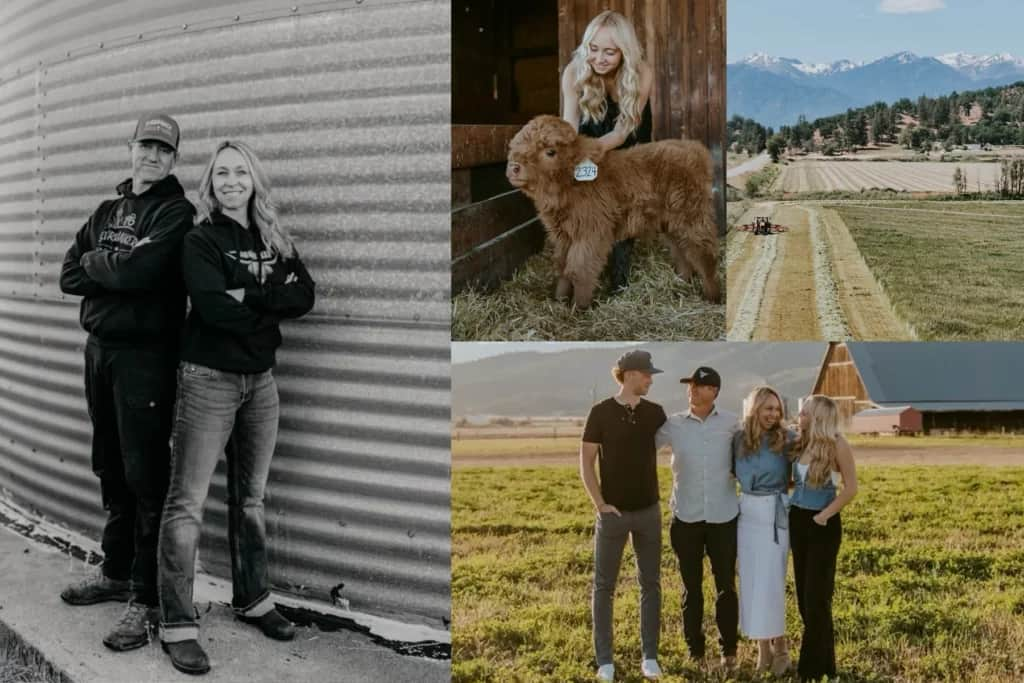
How StarWalker Got To Growing Wild
Their lives changed in 2012 when Jason’s parents decided to slow down, and the young family returned home to operate and expand the 1,100-acre family farm. Kristina was ready. “I knew I wanted our kids to be raised similarly to the way Jason and I were,” she says.
Since leaving the Scott Valley, Jason had missed farming. “I like working with machinery and equipment,” he says. “To me, it’s like playing in a big sandbox every day.”
He had, during that time away, kept up with developments in agriculture and was committed to caring for the land.
“We were already certified organic,” he says. “In organic farming, you are really implementing most regen practices. But regenerative is about so much more than soil health—it’s about creating a thriving ecosystem that benefits the land, the animals and the people who depend on them.”
Regen-Agriculture—It’s Healthy Like Wild Game
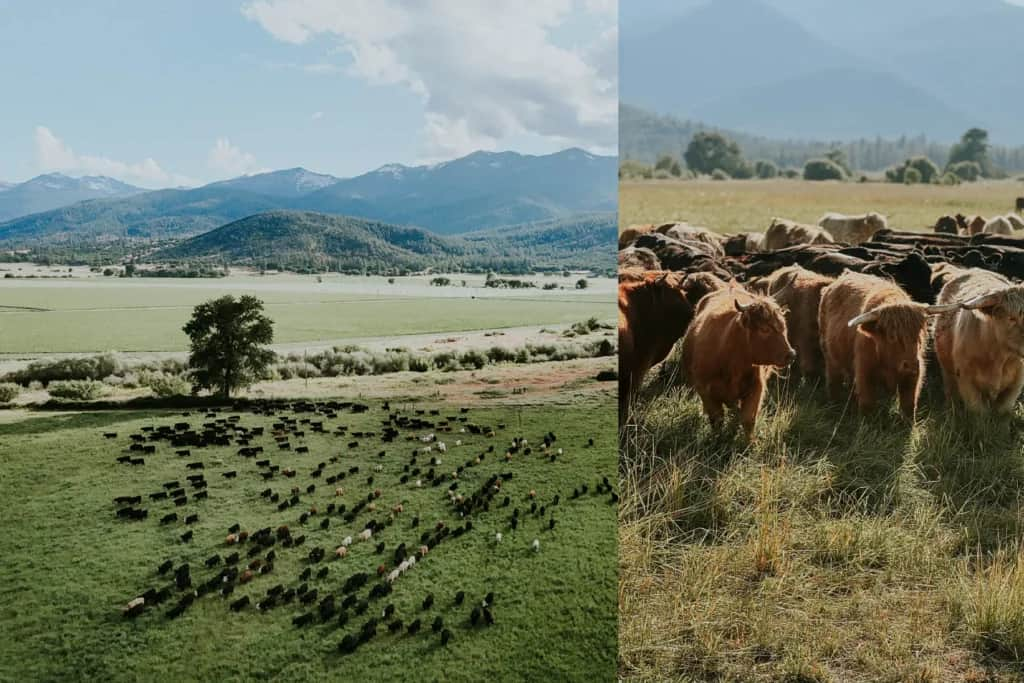
A lifelong hunter, Jason has a unique way of explaining how regen-ag mimics nature. “Ever wonder why game hunted in the wilderness is so healthy?” he asks. “Animals in the wild poop or pee on the ground, which makes stronger, healthier grass and soil, and they eat just what they need. As a bonus, the grass stays healthy and doesn’t get grazed to the ground, weakening root systems. The soil is nutrient-rich, carbon is sequestered, and bio-diversity flourishes. The beautiful mountain soil around here produces the best meat, probably better than what we produce on the farm. The game feeds on its grass their entire life. You can’t ask for a healthier, more regenerative system.”
When Jason took over the farm, his parents grew grain and alfalfa. Instead of focusing only on hay production, he saw the potential for diversification.
“I thought, why not get some cattle, feed them the hay and create a more sustainable and profitable system?” he says.
Most ranchers in the Scott Valley raised Angus and Herefords, but the Walkers opted for a lesser-known breed. In 2017, Jason found 25 Scottish Highlands for sale at a good price on Craigslist and purchased the herd. Leaner than Angus or Herefords, they are flavorful, well-marbled and can tolerate cold weather—an ideal choice for the Walkers’ location.
To meet the increasing demand for their beef, Jason focused on expanding their herd by retaining all the heifers and selling the steers locally. The demand quickly outpaced their supply, prompting them to introduce an Angus herd alongside the Scottish Highlands.
Angus cattle reach market weight in about two years, compared to the three years it takes for Scottish Highlands. This shift allowed the Walkers to boost their beef production without compromising quality. This addition enabled them to meet customer demand while upholding their commitment to raising high-quality, pasture-raised beef.
At the same time, they were also raising pork on a small scale for their own needs. When locals heard about it, they began calling and expressing interest in buying pork or a piglet. The demand soared. It became increasingly difficult to find a processing plant in northern California or southern Oregon that could handle slaughtering and butchering using organic practices.
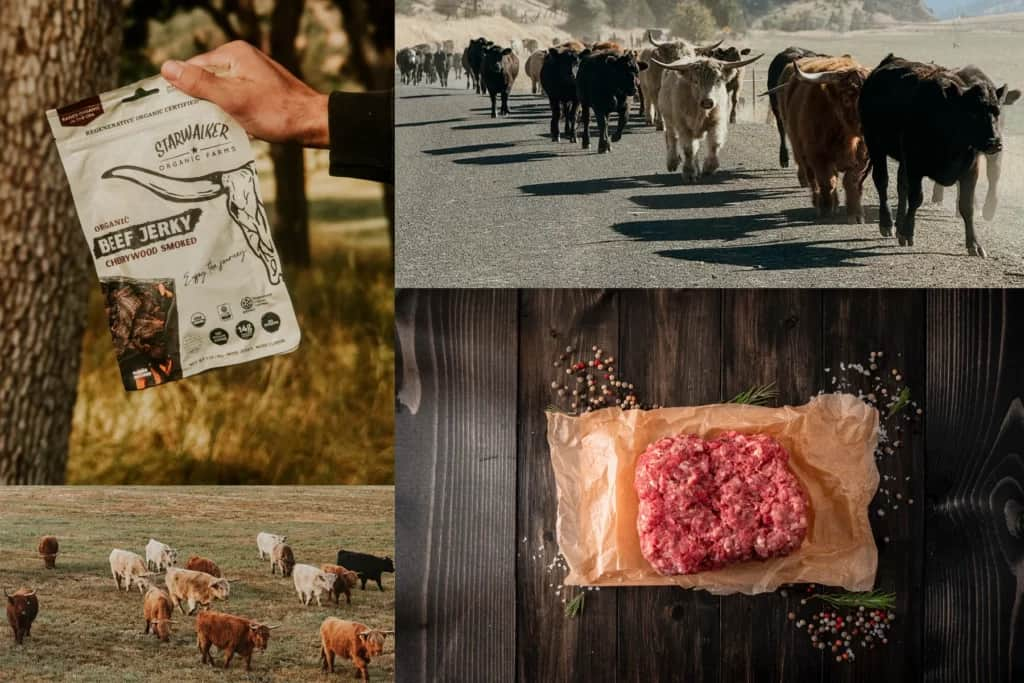
Kristina’s Marketing Plans—Direct-To-Consumer Sales
In 2020, Kristina stepped away from the dance studio she had opened in Fort Jones and began putting her marketing expertise to work at the farm.
“We were not doing anything on a big scale and were not shipping meat—we were strictly local,” she says. “I got excited about regenerative ag. Eating organically grown food and healthy eating have always been important to me, and I wanted to share what we were doing with more people.”
She created a marketing campaign, launched direct-to-consumer sales, learned how to ship meat with dry ice, and even designed a website for the family business.
“We wanted to make sure the customer is satisfied with our products,” she says. “That took a lot of learning, but we kept at it. Then, we decided we wanted to ship products that didn’t need dry ice. That’s when we launched our jerky. From there, we’ve been constantly learning and planning to introduce new products.”
The challenge of finding a reliable meat processing facility persisted until 2023 when the situation finally reached a tipping point.
“We had built a growing demand for our regenerative organic pork, and the need for a local processing solution became critical,” Jason explains. “When a company approached us about supplying organic domestic pork for their national deli meat program, we knew that having control over the processing would be key to scaling up.”
That's when the Walkers purchased a local processing plant that had previously shut down. They subsequently renovated the plant to meet current standards.
“Now, it’s only a 15- to 20-minute trip to the facility, and we have complete control over how our animals are processed—from turning them into jerky to producing meat products,” Jason shares. “We’ve been able to expand our value-added product offerings, such as bacon, all while maintaining organic methods.”
That milestone set the stage for continued growth. This spring, StarWalker Organic Farms’ new line of nutritious beef snack sticks will hit the market.
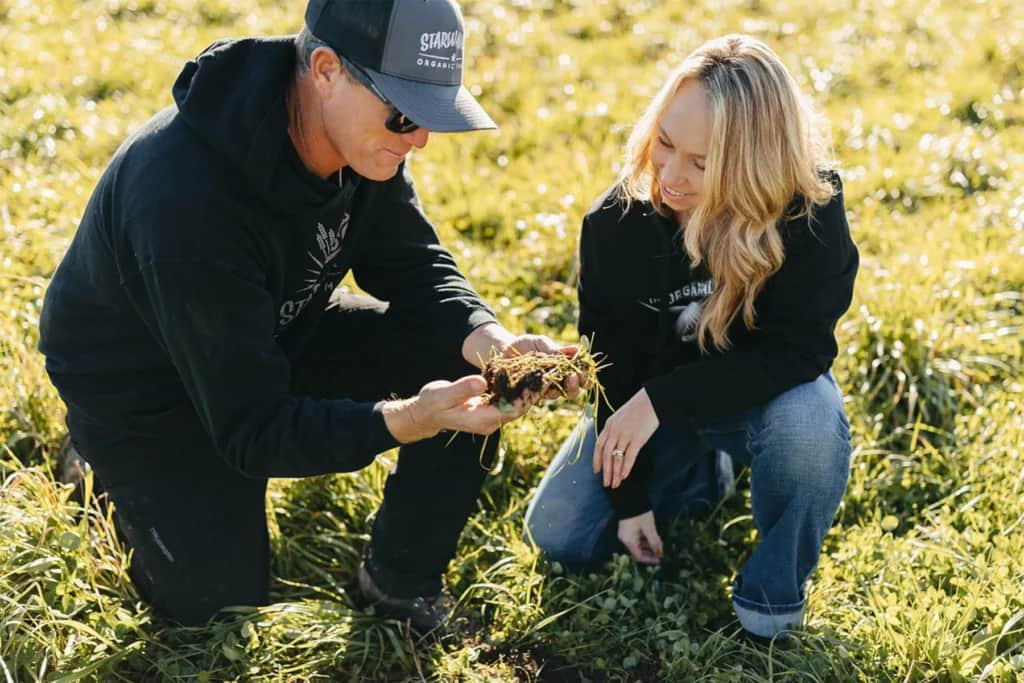
StarWalker’s Bright Future
Today, the Walkers manage 4,000 acres, with a mix of owned and leased land. Jason leads the work in the fields, overseeing livestock and farming operations, while Kristina spearheads marketing, sales, and customer engagement.
“We try to collab on everything, we problem solve together. That’s one of our strengths,” Jason says. “She’d love to be outside in the sun instead of inside at the computer, and there are days when it’s so cold I would rather be inside than out. We are a good team.”
“We want our brand to be nationally recognized,” Kristina adds. “We want people to get quality, healthy food; we want to help other farmers become regenerative and be profitable. We’d like to share our knowledge with other regenerative producers and give them a contract to produce meat for us—it’s a win-win situation.”
To learn more about StarWalker Organic Farms, visit starwalkerorganicfarms.com.
Time For A Food Fact Check

At StarWalker Organic Farms, we believe in transparency and helping people make informed choices about their food. Let’s unpack a few common food debates.
ORGANIC FOOD: Myth vs. Reality
Organic isn’t a buzzword—it’s a commitment. While organic produce and meat can cost more, the benefits include fewer pesticides, healthier soil, and food free from synthetic additives. It’s an investment in both personal health and the environment. However, not all “organic” labels guarantee nutrient density. Look for certifications like Regenerative Organic Certified, which ensures better practices and higher-quality food.
RED MEAT: Friend or Foe?
When sourced from regenerative, grass-fed systems, red meat can be an excellent source of iron, B vitamins, and healthy fats. The problem lies in overly processed and conventionally raised meat, which lacks the nutrient profile and ethical standards of responsibly raised alternatives.
PLANT-BASED MEATS: A Viable Alternative?
Plant-based meats can be a convenient choice, but they’re often ultra-processed and contain additives. Real meat, especially from regenerative systems, offers a superior nutrient profile and avoids the environmental concerns of monocropping for plant-based alternatives.
EGGS: Local vs. Mass-Produced
The difference isn’t in taste—it’s in how the chickens are raised. Locally farmed eggs often come from hens raised in humane, outdoor environments with diverse diets, leading to healthier eggs richer in vitamins like A, D, and E. The taste of mass-produced eggs may be similar, but their nutritional quality and ethical considerations fall short.
Informed choices empower better health and a sustainable future. At StarWalker, we’re proud to produce food that’s as good for you as it is for the planet. —Kristina Walker
